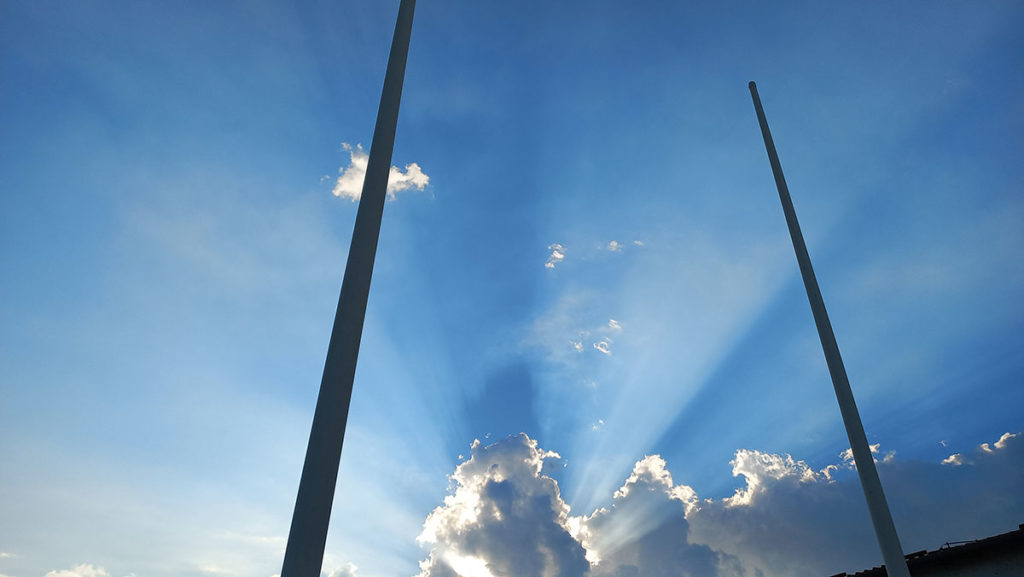
In a panicked frenzy, the ruler warned us about a series of disasters headed our way. This was, of course, far from the maximum range of his abilities. His panic scale is calibrated at the scale of cataclysms and apocalypses, unavoidable biblical prophecies, and general portents of doom.
We suspect that behind his panicked ecstasies is an attempt to save Serbia from the general breakdown of everything that exists.
We have no government, parliament, judiciary, political intelligence, or anything to protect us from that against which there is no defense. We only have one guardian scaring us with his frantic zeal. All that is left is for us to bow our heads and enjoy the latest apocalypse, which has long since become our life.
However, it’s hard to convince a fearmonger that that is all he is. If it were easy, it would be impossible for him to sell his uncontrolled fear to his subjects as courage befitting only the wisest of men. His whole rule is based on spreading the worst news and assuring us that everything is horrible, but that it would be even worse without him.
It’s been like this ever since the biblical floods of 2014 and his deranged exclamations before supernatural forces (“if we lose Sabac, we’ve lost Serbia”); the blizzard in Feketic, the beginning of the pandemic and the trampling over fresh graves, the arrests of elderly citizens and the soldiers in the streets, the fight for Kosovo which he must wage by himself.
There are numerous similar scenes of the master of all things in our lives losing control over himself and his rampant feelings. In New York, he foretold a huge, terrible war and gave an epic, ultra-patriotic speech in the UN, aimed at the masses who have little to no insight into the state of things.
The latest scary story came from a somewhat unfamiliar sphere. It will be worse than in the nineties. Everything that’s coming is the worst we’ve seen since 1944 (why not 1941!?). “You don’t understand what is happening, I’ve never seen anything like this”. “I wish the sky would fall on me alone, instead of on our country”.
No one knows what tomorrow may bring, he professes. Serbia’s situation is much harder than it looks, so he’s asked the church – i.e. Patriarch Porfirije – for help. In so doing he implies that the grim fate which awaits us surpasses the bounds of this world and enters the realm of dark forces and miraculous prayers.
Two days ago, he said that it is uncertain who will live to see the end of winter, meaning, I assume, the countries more powerful than us. The winter has always been his favorite scarecrow, keeping him in a state of high tension – and in power. The small and weak will crumble by March 31st, according to him. We are also somewhere around that line, at the very edge of promised doom. “The Battle of Stalingrad will happen much sooner than we thought, so we Serbs are left wondering what to do. Will we be able to save both sides of the Danube for ourselves, and not for somebody else?”
This tangle of contradictory thoughts makes it hard to comprehend what, exactly, is coming for us: winter, hunger, war, sickness, all of the above or something completely new, a specter produced in the laboratories of global conspiracy, then sent forth to Serbia, where all conspiracies feel at home.
There is no indication as to where and between whom this new Battle of Stalingrad – the bloodiest clash of armies in human history – will take place. What was he trying to say? I suppose that the Russians would be on one side, but any attempt at drawing an analogy between the Russian aggression against Ukraine and the Soviet Union’s defensive battle in the war against Nazism is utter lunacy. Where is this new Stalingrad, who is Stalin, who is Hitler, who are Zhukov, Vasilevsky, Chuikov, Rokossovsky, Von Paulus and Manstein?
The ruler has declared war on geopolitics, geography, and topography by bringing the shores of the Danube into the current crisis. Unless his laments about those shores were only a mental glitch and not an indication that he is afraid that somebody may attack our country from the direction of Hungary, Rumania or Bulgaria – all members of the western military alliance. The idea doesn’t make sense without a chaotic European or global conflict and a military campaign on this part of the Balkans. If he knows something about that, he must share it with everybody, regardless of how big a panic it might cause.
The devil is never as black as he seems to another devil, but nobody from that diabolical world comes bringing hope and tranquility. A heavy inclination to severe panic still makes our ruler happy, regardless of tearful facial expressions in his public appearances. If this weren’t a source of such joy for him, he might actually behave as a statesman.
He is announcing the apocalypse, so anything less than that will be counted as the result of his heroic doing. This is what could have happened, but I did not allow it.
People are no longer afraid of his cries, but they are hard to manage without serial nervous breakdowns. The messenger of great misfortune has long surpassed the doom he portends.
It is tortuous and horrible to live like this every goddamn day. I wish that the cataclysm or whatever awaits us would finally happen, so that we can move on.
Translated by Marijana Simic
Peščanik.net, 15.10.2022.
- Biografija
- Latest Posts
Latest posts by Ljubodrag Stojadinović (see all)
- Odvratna priča - 26/04/2024
- Biro za izgubljene - 19/04/2024
- Jedan dan sa Dadom Vujasinović - 12/04/2024


